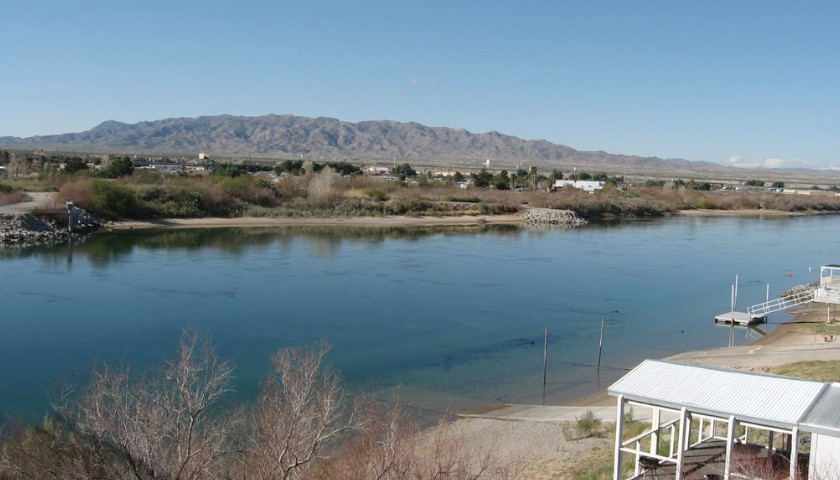by Katelynn Richardson
The federal government plans to pay farmers that draw water from the Colorado River to take less, one piece of a multi-pronged plan to reduce usage.
The U.S. Department of the Interior announced a new program that will draw on $4 billion in Inflation Reduction Act funding approved for water management and drought mitigation in the Colorado River Basin. Called the Lower Colorado River Basin System Conservation and Efficiency Program, it will be run by the U.S. Bureau of Reclamation. Through the program’s three components, it will select conservation proposals from Colorado River water delivery contracts and entitlement holders, typically farmers using the water to grow crops.
The first component emphasizes drought mitigation, water and power reliability, and natural resource conservation efforts that improve Lake Mead’s water level. It will allow applicants to request payback terms of $330 per acre-foot for one year, $365 per acre-foot for two years, or $400 per acre-foot for three years.
Proposals must also include amounts of water expected to be conserved, methods of verification, and an economic justification, the Bureau of Reclamation told potential applicants.
The second component will seek applicant proposals for other water conservation projects at different pricing amounts, and the third component, which will open in early 2023, will deal with long-term efficiency improvement projects.
Applications are open for the first two components now through Nov. 21, 2022.
While this announcement focuses on “near-term actions,” the Interior Department says it is still looking to invest in long-term systems that will improve efficiency. Similar programs in Upper Basin states are also under consideration and will include at least $500 million in investments in Colorado, Utah, Wyoming, and New Mexico.
“The prolonged drought afflicting the West is one of the most significant challenges facing our country,” Interior Secretary Deb Haaland said in a statement. “I have seen firsthand how climate change is exacerbating the drought crisis and putting pressure on the communities who live across Western landscapes.”
“Thanks to historic funding from the Inflation Reduction Act, the Interior Department is committed to using every resource available to conserve water and ensure that irrigators, Tribes and adjoining communities receive adequate assistance and support to build resilient communities and protect our water supplies,” she continued.
Bureau of Reclamation Commissioner Camille Touton said in July that Colorado River Basin states should figure out how to conserve between 2 and 4 million more acre-feet of water by 2023
U.S. Sens. Catherine Cortez Masto, D-Nev., Michael Bennet, D-Colo., and Mark Kelly, D-Ariz., advocated for the $4 billion in drought funding during the passage of the IRA.
“The Western United States is experiencing an unprecedented drought, and it is essential that we have the resources we need to support our states’ efforts to combat climate change, conserve water resources, and protect the Colorado River Basin,” they wrote in an August 5 statement. “This funding in the Inflation Reduction Act will serve as an important resource for Nevada, Arizona, and Colorado, and the work we’ve done to include it will help secure the West’s water future.”
– – –
Katelynn Richardson is a contributor to The Center Square.
Photo “Colorado River” by Ken Lund. CC BY-SA 2.0.





